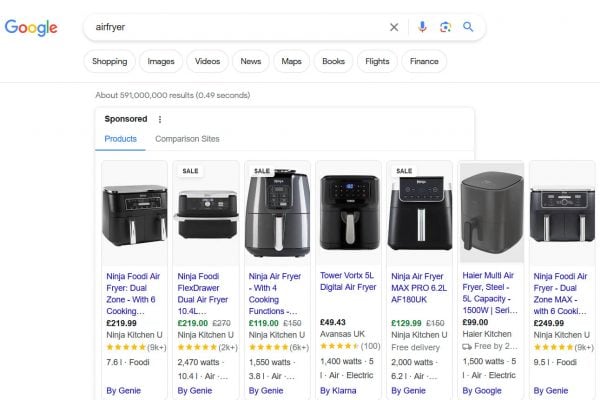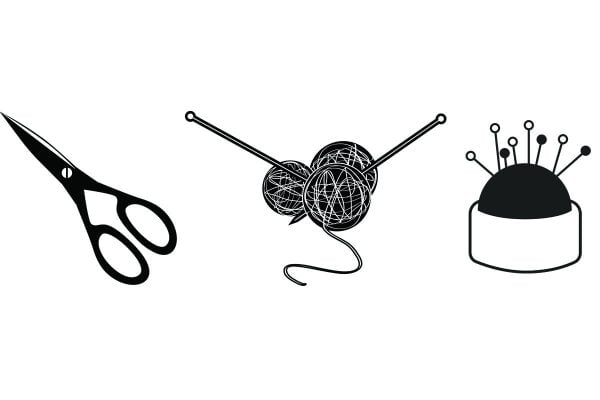 Google has been formerly charged by the EU Commission and accused of abusing it’s position as the dominant search engine in Europe.
Google has been formerly charged by the EU Commission and accused of abusing it’s position as the dominant search engine in Europe.
The basis of the claim is that if you’re the market leader in any field, you shouldn’t use that position to promote your other services to the detriment of competitors. It’s a similar case to that Microsoft faced over the dominance of Internet Explorer, which led to them eventually installing a browser choice app on all new computers.
The case against Google has been slightly watered down to focus on shopping adverts in search results. Originally the case covered properties such as YouTube and Google Maps which appear to have been dropped, although other charges are being filed regarding Google’s Android mobile platform (Which is a bit bizarre seeing as it’s open source enabling vendors like Amazon to create their own closed Android offering spewing forth a raft of Amazon apps and in the same way cutting out Google’s apps!).
Google are accused of displaying Google shopping results in search and there is an allegation that they intentionally lower the ranking of alternative comparison shopping verticals. For instance they don’t surface shopping results of Microsoft’s Bing platform (why would they?) and lesser known vertical shopping sites like Foundem are also not as prominent as Google’s on comparison shopping submissions.
Google themselves agree and said in a memo to staff “People can use Bing, Yahoo, Quora, DuckDuckGo, and a new wave of search assistants like Apple’s Siri and Microsoft’s Cortana… in addition, users increasingly turn to social networks like Facebook and Twitter to find news and suggestions – where to eat or which movies to watch“.
Google’s rivals are complaining that Google place their own shopping results ahead of theirs, but in truth I remember a time many years ago when Google’s search results were littered with comparison shopping engines, none of which were real search results but merely affiliate sites desperate to get you to their site to make money when you click through to a retailer to purchase an item. It was a pretty dire experience and personally I’m happy that Google dumped them from organic results.
The EU case isn’t about organic search results however, its focussing on adverts paid for by retailers. Of course if you do want to see search results from other provider there’s nothing to stop you browsing to their websites to search, but people generally don’t want to do that and that’s the basis of the EU complaint.
Google’s troubles aren’t limited to the EU, there’s also a possibility that the French telecom regulator, Arcep, could insist that Google provide links to three competitors search engines on it’s home page and disclose the broad principles of the Google algorithm to their users.









5 Responses
There is no doubt that Google is far too powerful.
From my point of view though, I need to advertise my products and my stores – I’d like stability. I don’t want to put my limited time and resources into a world dominated by Google and then find the rules have changed and I need to revise everything.
I’d prefer if they went after Amazon. Their behaviour is just as bad.
They will use your sales data, steal it and sell the best products themselves and if that wasn’t bad enough they then give their own listings preference over others (even when it is directly obvious that their prices are more expensive).
The second part is quite bad practice and deliberately anti competitive (whether legal or not). The amount of times I’ve seen a “sold and distributed by Amazon” and when you look at all offers, Amazon’s price can often be quite a bit more expensive than the lowest price. Very misleading to customers and not in good spirit.
Then you have FBA which gives itself preference over seller fulfilled….
@For instance they don’t surface shopping results of Microsoft’s Bing platform (why would they?)
Well, imagine Google had an e-commerce blog and this will be the only one shown in the search results when one looks for e-commerce related questions. What would that mean for Tamebay?
I feel like if the Tamebay writers weren’t too enthusiastic about the EU, but actually we’re quite lucky the EU commission is there to protect us from such monopolist behaviours.